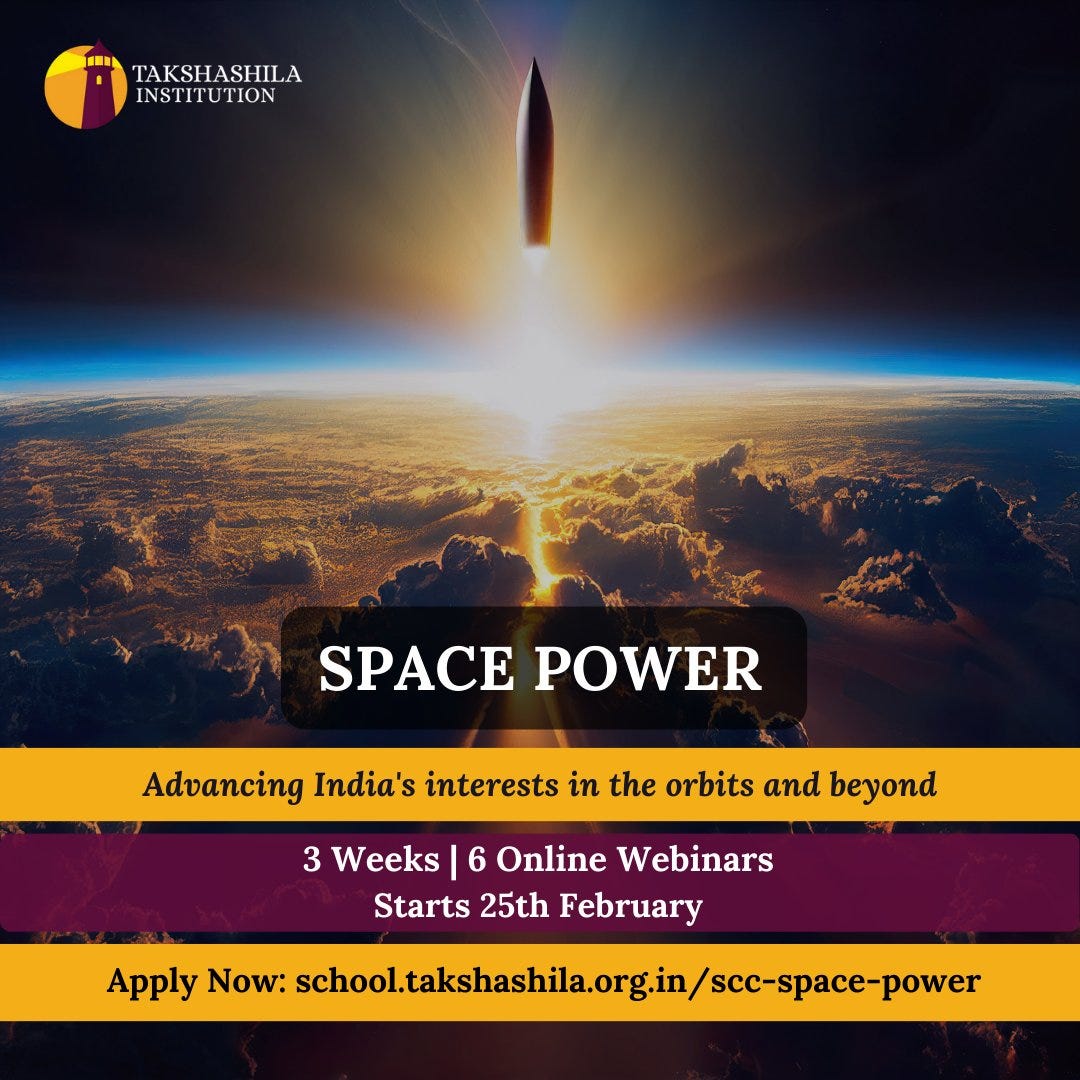Re-energising India’s Biotech Ecosystem
Dear Reader,
We hope you are well. In this edition of the Dispatch, we bring to you updates on our work relating to India’s biotech ecosystem, India’s efforts to build an indigenous mobile operating system, rare earth elements strategy for India, and the global digital public goods revolution and more.
Re-energising India’s Biotech Ecosystem
The Takshashila Institution organised a roundtable discussion on India’s biotech ecosystem on December 7, 2022. In a Takshashila Blue Paper released last week, Shambhavi Naik has authored a summary of the discussions and recommendations from the roundtable.
Biotech and healthcare sectors are critical for India’s post-pandemic economic revival. Since the global demand is expected to rise, it is necessary to upgrade India’s industrial base in these sectors. The discussion focused on the issues of funding, human resources, and infrastructure affecting the sectors today.
Some of the recommendations include:
Empowering the Ministry of Science to control its funds in order to help resolve issues with funding delays and provide flexibility in funding specific projects.
Government funding for programmes to take new products from innovation to market: for e.g. seed funds for 1000s of companies, then increasing funding for select companies that show promise.
Allowing 100% FDI in pharmaceutical companies.
Increasing access to markets through advanced purchase agreements or streamlining of export controls to increase investor confidence.
In addition to The Biotech Industrial Training program, an accredited course can be created to train more Bachelors's and Masters's students with key biotech skills.
Indigenous Mobile Operating System
India is trying once again to build its indigenous mobile operating system which can replace Android and iOS. A start-up based out of IIT Madras recently launched BharOS as an alternative.
Bharath Reddy, in a new Takshashila Position Paper, argues that India is better off backing an open source OS with strong developer and user communities, rather than creating a new OS ground up:
If the goal is to have an alternative to the dominant mobile OSes in the market, the government is better off backing an open-source OS with a strong developer community. It can help create a sustainable open-source ecosystem by providing grants to developers supporting these projects or by creating demand for it through preference in procurement.
Several open-source mobile OSes already exist. Some of them, like LineageOS and ReplicantOS, are even based on the Android Open Source Project. Ubuntu Touch is another mobile OS that is based on the popular open-source desktop OS Ubuntu. While these OSes held much promise, most of them have not seen widespread adoption.
Rare Earth Elements Opportunity for India
Last month, Sweden announced that it has discovered 1 million tonnes of rare earth oxides in the far north region of the country. This is Europe’s biggest deposit of rare earth elements found so far and is potentially significant to its future plans for energy transition and self-sufficiency in critical minerals. This was followed by a study from Norway which found substantial mineral resource deposits on the seabed of its extended continental shelf.
Rare earth elements is a collective term for 17 elements, namely, scandium, yttrium, and lanthanides (a further set of 15 elements). They have important strategic, industrial, and commercial uses:
What is the geopolitical significance of rare earth elements? Where do India’s strategic and commercial interests in rare earth lie? Is India sitting on top of a huge opportunity to become a major player in the rare earth sector?
The latest Takshashila Issue Brief on the rare earth sector answers these questions and more!
Digital Public Goods Revolution
Over the last few years, a wide range of stakeholders across the world have developed a new approach to governance mechanisms and public service delivery. This new model is centered around the concept of digital public goods - open-source digital solutions - that adhere to minimum privacy criteria and user security and do no harm by design.
In last Wednesday’s All Things Policy, Ritul Gaur and Arjun Gargeyas spoke to Liv Nordhaug (Co-Lead at Digital Public Goods Alliance) to discuss the concept of digital public goods, the challenges and opportunities they present, and how they can be used to benefit society at scale.
Eye on China is Back
After a brief hiatus, the Indo-Pacific Studies team at Takshashila has kickstarted Eye on China again in a new and exciting format. The weekly newsletter offers news and analysis related to China from an Indian interests perspective.
Subscribe now to have Eye on China delivered to your inbox every Saturday.
Puliyabaazi Featured on The Mint Lounge
Puliyabaazi, a Hindi podcast on public policy, politics, technology, philosophy, and current affairs, turned five earlier this month. Pranay and Saurabh spoke to the Mint on the conceptualisation and creation of Puliyabaazi:
Like all Indians, we cherish our multilingual superpowers. But around five years ago, the two of us realised our multilingualism was superficial. We could chit-chat effortlessly in conversational Hindustani on movies, politics, and the mundane. But as soon as the conversation became technical, we inadvertently switched to English. The inability to communicate ideas, concepts, and metaphors in Hindi bothered us. So began a quest for a medium to discuss complex ideas and concepts from public policy, technology, and philosophy in Hindi.
Listen to Puliyabaazi:
Special Credit Course on Space Power
The ability to use space for commercial, scientific, and military purposes is a vital determinant of national power. Recent years have seen the rise of a global commercial space sector, growing lunar ambitions, and plans for interplanetary exploration.
The Special Credit Course on Space Power will provide an introduction to emerging issues related to space and how those could shape India’s interests, its opportunities, and the choices it makes. The course will cover the government and commercial space sectors, strategic affairs, and international governance.
The course is primarily designed to be useful for government officials, members of the armed forces, space entrepreneurs, lawyers, academics, policy professionals, as well as other individuals interested in outer space affairs. It will be conducted online only on wees.
That’s all from us this week. Take care!









